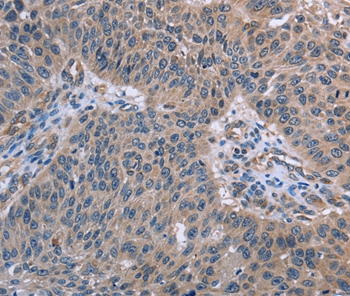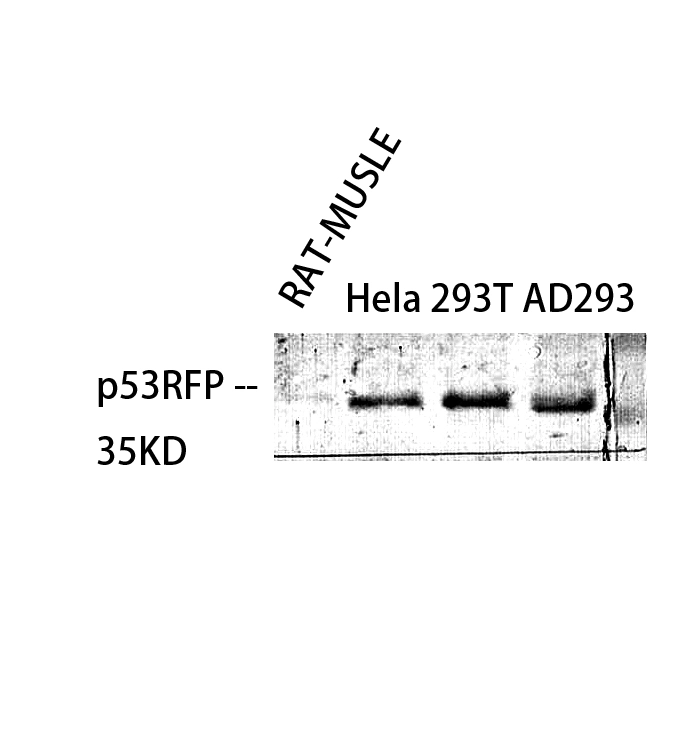Western Blot analysis of TM4 cell using p53RFP Polyclonal Antibody at dilution of 1:400
RNF144B Polyclonal Antibody
E-AB-15118
Product group Antibodies
Overview
- SupplierElabscience
- Product NameRNF144B Polyclonal Antibody
- Delivery Days Customer12
- Applications SupplierELISA WB IHC
- CertificationResearch Use Only
- Concentration0.4mg/ml
- Scientific Descriptionp53 is the most commonly mutated gene in human cancer identified to date. Expression of p53 leads to inhibition of cell growth by preventing progression of cells from G1 to S phase of the cell cycle. Most importantly, p53 functions to cause arrest of cells in the G1 phase of the cell cycle following any exposure of cells to DNA-damaging agents. The MDM2 (murine double minute-2) protein was initially identified as an oncogene in a murine transformation system. MDM2 functions to bind p53 and block p53-mediated transactivation of cotransfected reporter constructs. The MDM2 gene is amplified in a high percentage of human sarcomas that retain wildtype p53 and tumor cells that overexpress MDM2 can tolerate high levels of p53 expression. Another p53 target protein is the p53-inducible RING finger protein (p53RFP), an auto-ubiquitinylated protein acting as an E3 ubiquitin ligase. p53RFP, also designated IBRDC2 in mouse and rat, receives ubiquitin from specific E2 ubiquitin-conjugating enzymes and transfers it to substrates that promote their degradation by the proteasome. p53RFP may mediate re-entry into the cell cycle.
- UNSPSC12352203







